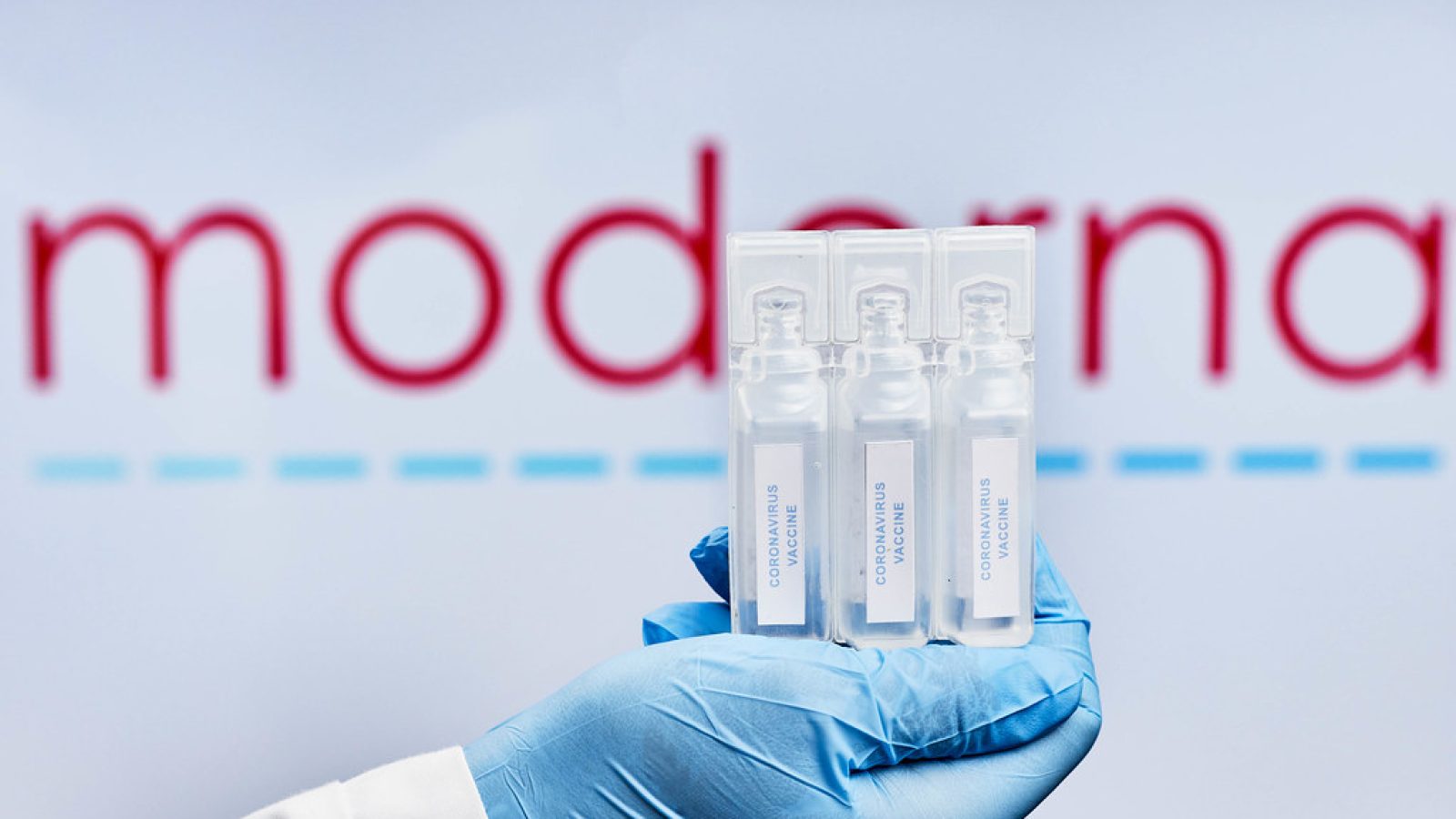Peter Doshi, senior editor for the British Medical Journal (BMJ), provided an investigative report showing two regulatory officials at the U.S. Food and Drug Administration (FDA) accepted roles at Moderna after the licensure of the company’s mRNA COVID-19 shot.
Doshi’s scoop is the latest evidence of the regulatory agency-Big Pharma revolving door.
According to Doshi, Doran Fink, a physician-scientist, worked in the FDA’s Office of Vaccines Research and Review before accepting a job at Moderna.
From the BMJ:
The physician-scientist Doran Fink worked his way up at the Food and Drug Administration, with a focus on the regulation of vaccines. Starting as a clinical reviewer in 2010, he was promoted to lead medical officer in the FDA’s Office of Vaccines Research and Review, overseeing a small team of medical officers responsible for infectious diseases and related biological products.
During the covid-19 pandemic Fink took on a public role, appearing in numerous FDA and Centers for Disease Control and Prevention advisory committee meetings to discuss covid vaccines and serving on the senior leadership team for covid vaccine review and policy activities. Part of his role was to engage vaccine manufacturers to advise on the development of vaccines during the pandemic. In mid-2020 Fink announced the FDA’s expectations for any covid vaccine that the agency would consider authorising, and he took part in the ultimate decision to license the Pfizer and Moderna vaccines.
Fink’s LinkedIn profile states that he finished his role at the FDA in December 2022. Two months later he was working at Moderna, heading the translational medicine and early clinical development programme in infectious diseases. He is one of two regulators The BMJ has found to have recently moved to Moderna from the FDA’s Office of Vaccines Research and Review.
Top FDA Officials Accepted Jobs with Moderna After Playing Key Roles in the Licensure of COVID-19 Vaccineshttps://t.co/3twOFqxX7N
— The Epoch Times (@EpochTimes) November 10, 2023
Jaya Goswami, the report’s other named individual, worked in the FDA’s Center for Biologics Evaluation and Research.
“As a medical officer she had, in her words, ‘broad oversight over vaccines and biologics clinical development’ and was responsible for evaluating whether the clinical data for Moderna’s covid vaccine met regulatory standards for approval; licensure was granted at the end of January 2022,” Doshi writes.
“Goswami’s LinkedIn profile states that she left the FDA in June 2022 and that same month started a new role as director of clinical development in infectious diseases at Moderna,” Doshi continued,” he added.
Investigation raises concerns about 'cozy relationship' between the FDA and Moderna during Covid pandemic – after two officials got six-figure jobs weeks after approving firm's shot | Daily Mail Online https://t.co/Y2GLWGCgMu
— Dr David Cartland (@CartlandDavid) November 9, 2023
Doshi added in his BMJ report:
Goswami and Fink did not respond to requests for an interview. The BMJ asked Goswami, Fink, Moderna, and the FDA whether either of the former regulators sought guidance from the FDA’s Office of Ethics and Integrity before moving to Moderna, as well as whether they recused themselves from any FDA matters related to their employment search. The FDA instructed The BMJ to file a Freedom of Information Act request for this information, which The BMJ has done, and Moderna’s vice president of communications and media, Chris Ridley, replied, “We have no comment on your inquiry.”
At Moderna, Goswami has been involved in the company’s efforts to bring to market an mRNA vaccine against respiratory syncytial virus (mRNA-1345). In July this year the company announced that it had submitted applications for regulatory approval in the United States, the European Union, Australia, and Switzerland. In the US the review can be expected to be conducted by the FDA’s Office of Vaccines Research and Review, the group Fink and Goswami departed.
Daily Mail highlighted this common ‘revolving door’ of government employees transitioning to lucrative, high-paying jobs in the private sector.
While specific salary data for those positions at Moderna are not available, salaries for similar positions at the company in executive and leadership roles tend to range from $195,000 to as high as $330,000 annually.
The average salary of an FDA worker, meanwhile, hovers around $133,000.
When agency staffers go to work for the companies whose products they reviewed and voted to approve, they raise concerns about conflicts of interest and impartiality that undermine the FDA’s objectivity when it comes to determining the fate of their products.
The questionable speed at which regulators transition from lower-paying government jobs to lucrative posts in the private sector is not unique to Covid-19-era developments or even the FDA.
A 2016 report concluded that over a quarter of FDA officials who reviewed cancer and hematology drugs for approval left their federal oversight posts to work for the industry they previously regulated.
The revolving door culture can be hard to grasp because the government has maintained a lax enforcement protocol, according to Dr Doshi, who campaigns for greater transparency of clinical trial data.



Join the conversation!
Please share your thoughts about this article below. We value your opinions, and would love to see you add to the discussion!